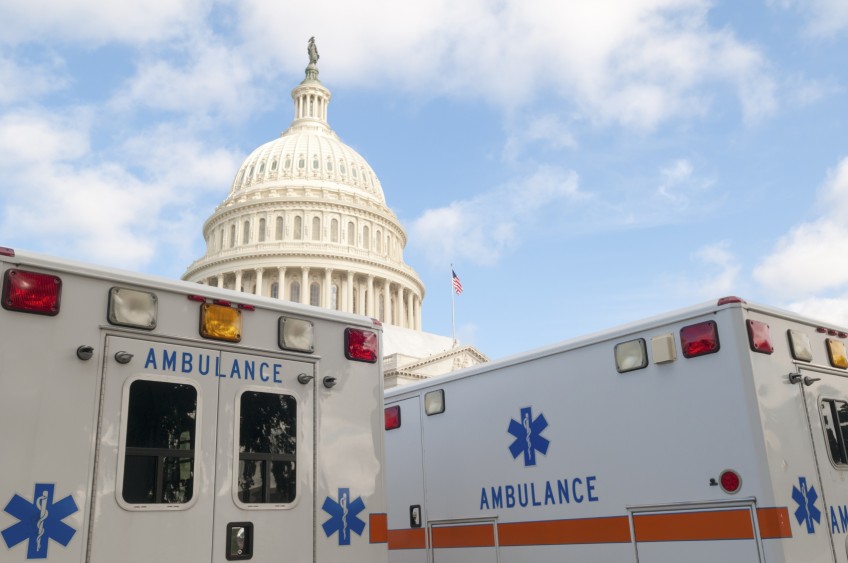Obamacare FAIL
From Marketplace Exchanges to the Individual Mandate
The Obama Administration would have you believe repealing the Affordable Care Act (ACA) is a political and legislative long shot, as was demonstrated by the president exercising his veto power within 36 hours of Congress sending a repeal bill to his desk. However, the landmark legislation is in much greater danger of outright failure than Democrats or the media would have you believe.
Each of the big five health insurers and also co-operative providers (‘co-ops’) serving the Obamacare exchanges are either underperforming, or have experienced record losses since the exchanges came online in 2014. The Obamacare Insurance Marketplaces (‘Marketplace’) – which serves those previously ineligible for health insurance through employers, Medicare or Medicaid – has failed to attract a balance of young, healthy people along with individuals previously not eligible for health insurance. Patients who could not previously obtain insurance due to a pre-existing condition often require expensive and immediate care, which causes insurer costs to skyrocket.
This disparity in the market has caused health insurance giant UnitedHealthcare to recently announce their uncertainty whether to continue to provide coverage to Marketplace exchanges beyond 2016. Aetna and Humana are also determining the extent of the risk in this market segment.
In addition, half of the co-ops created by the ACA have already gone out of business and are requesting $2.5 billion in taxpayer funding to recoup losses. If the majority of providers exit the market in 2017, those remaining will be forced to take on a greater share of high-risk policies (or will also exit the market).
During initial implementation of the Affordable Care Act, health insurers understood the economic risks associated with taking on underserved populations, but were eager to participate as record profits were sure to materialize either through participation in Medicaid Expansion, or through serving the highly subsidized state Marketplace exchanges.
Insurers were also reassured by inclusion of Section 1342 in the law, better known as the “risk corridors” program. The program would receive contributions from insurers who profited from the Obamacare Marketplace, which created a funding stream for Center for Medicare and Medicaid Services (CMS) to pay insurers who experienced a shortfall. The fees collected by the risk corridor program offered financial insulation to insurers during the first three years of Obamacare implementation, but did not offer an alternative funding mechanism if losses outweighed profit for all insurers.
Seeing the likelihood of a huge taxpayer bailout for Obamacare Marketplace failures, Senator Marco Rubio (R-FL) introduced a provision in the 2014 and 2015 spending bills that prohibits CMS from funding the risk corridor program with taxpayer dollars. The rule is forcing President Obama to find a way to keep providers in the Marketplace afloat, and even to consider moving funds from the Medicare trust fund to cover losses for health insurers. With providers left without the risk corridor safety net and potentially exiting the Marketplace, additional increases in health insurance premiums will be virtually assured.
This scenario invites reminding of another lesser-known exception to the Individual Mandate: if the cost of health insurance exceeds eight percent of individual and household income, the requirement to maintain private health insurance, or pay the penalty for not having health insurance becomes exempt. If the majority of states are not able to create a competitive market for health insurance, the Individual Mandate will be effectively null.
As was seen most recently in the Kentucky gubernatorial race, some elections are still won and lost on the issue of Obamacare, and 2016 will be no exception. With insurance premiums for 2017 announced in October 2016, consumers will weigh the cost of health insurance along with their votes for Congress and the president come November. With market forces precluding the ACA from its intent to offer an affordable option for healthcare for the uninsured, while also not providing the federal government critical revenue necessary for the framework of our federally-run health system, it will be clear to the American public that the ACA will has failed on all fronts.

